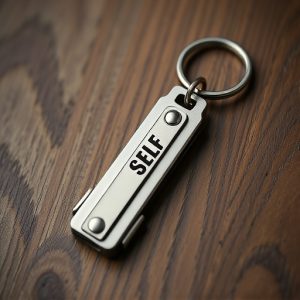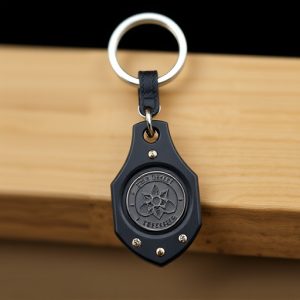Protective Keyring Laws: A Comprehensive Guide to Legal Carry States
Self-defense keychain devices are subject to varying legal frameworks across the US, with state laws…….
Self-defense keychain devices are subject to varying legal frameworks across the US, with state laws dictating open or concealed carry, age restrictions, permitted locations, and defensive mechanism types. States like Texas, Florida, and Arizona allow open carry, while New York and California have stricter rules requiring permits. Understanding each state's specific Self Defense Keychain Laws by State is vital for citizens aiming to legally protect themselves, ensuring compliance with legal boundaries while enhancing personal safety. Regularly checking these guidelines promotes responsible gun ownership and public safety.
“Exploring the legal landscape of self-defense keychains in the US, this comprehensive guide offers an in-depth look at ‘Self Defense Keychain Laws by State’. With a focus on protective devices carried legally, we navigate through varying regulations. From understanding essential legal frameworks to identifying states permitting such carry, this article is your resource for staying informed. Discover restrictions, considerations, and gain insights into navigating the diverse laws surrounding self-defense keychains across different US states.”
- Understanding Self-Defense Keychain Laws: An Overview
- States Allowing Legal Carry of Protective Keyrings
- Restrictions and Regulations by State
- Considerations for Carrying a Self-Defense Keychain
- A Comprehensive Guide to Staying Informed on Keyring Legislation
Understanding Self-Defense Keychain Laws: An Overview
The laws surrounding self-defense keychain devices vary significantly from state to state in the US, reflecting complex debates around personal safety and hidden weapons. These small, often concealed devices, designed to serve as a last resort for self-protection, have sparked varying responses from legislative bodies. Understanding self-defense keychain laws by state is crucial for anyone considering carrying such a device for personal security.
Each state has its own set of regulations governing the use and carry of self-defense tools, including keychains equipped with protective features. Some states allow open or concealed carry of such devices without a permit, while others require specific licensing or registration. Key factors in these laws include the type of weapon (e.g., knife, pepper spray), the circumstances under which it can be carried, and the age restrictions placed on ownership. Staying informed about these regulations is essential to ensure compliance and promote responsible self-defense practices.
States Allowing Legal Carry of Protective Keyrings
In the United States, the legal framework surrounding self-defense keychain devices varies significantly from state to state. Some states explicitly allow the open carry of protective keyrings for personal safety purposes, while others have more stringent regulations. Understanding these laws is crucial for individuals seeking to arm themselves for self-defense in public spaces.
States with favorable Self Defense Keychain Laws include Texas, where citizens can openly carry a wide range of self-defense tools, including keychains designed for protection. Similarly, states like Florida and Arizona have relatively permissive regulations, enabling residents to carry such devices without a permit. On the other hand, some states like New York and California have stricter rules, often requiring permits or specific types of licenses for open carry, making it more challenging for individuals to legally defend themselves using protective keyrings.
Restrictions and Regulations by State
Each state in the US has its own set of regulations regarding self-defense keychain laws, dictating what types of protective devices are legal for citizens to carry. These restrictions vary widely based on local legislation and interpretation of self-defense rights. For instance, some states allow any type of keychain designed for personal safety, while others have specific requirements like registration or permit systems. Understanding these state-by-state variations is crucial for individuals seeking to legally protect themselves using such devices.
When it comes to self-defense keychain laws by state, factors like blade length, capacity (for pepper spray or other irritants), and the overall design of the device play significant roles in legality. Some states have strict limitations on blade size, while others may allow a broader range. Additionally, certain states require users to be of a specific age or have completed self-defense training before acquiring these devices, further complicating their accessibility. Therefore, it’s essential for citizens to check their state’s specific laws to ensure compliance and exercise their right to self-defense responsibly.
Considerations for Carrying a Self-Defense Keychain
When considering carrying a self-defense keychain, it’s crucial to understand the legal implications and restrictions in your state. Self Defense Keychain Laws by State vary widely, with some allowing open carry while others restrict it to concealed carry with a permit. Before you decide to protect yourself with this device, research and familiarize yourself with your state’s specific regulations regarding self-defense tools like keychains.
Several factors come into play when navigating these laws. Age restrictions, permitted carrying locations (public vs private), and the type of defense mechanism allowed are just some considerations. Some states might differentiate between pepper spray and stun guns, while others may have limitations on the size or force of the keychain’s defensive capabilities. Staying informed about these nuances is essential to ensure you remain within legal boundaries and maximize your safety.
A Comprehensive Guide to Staying Informed on Keyring Legislation
Staying informed about self-defense keychain laws, or protective keyring device legal carry states, is an essential step for responsible citizens looking to exercise their right to bear arms for personal protection. Each state in the US has its own set of regulations regarding concealed weapons, including keyring devices designed for self-defense. These laws can vary widely from one state to another, affecting how and when you can legally carry a self-defense keychain.
To navigate this landscape, it’s crucial to consult official government resources and stay up-to-date with any changes in legislation. Regularly checking state-specific guidelines ensures compliance and empowers individuals to make informed decisions regarding their personal safety. By understanding the Self Defense Keychain Laws by State, citizens can protect themselves while adhering to local laws, fostering a culture of responsible gun ownership and public safety.
Understanding self-defense keychain laws varies across states, but arming yourself with knowledge about your rights and responsibilities is a crucial step. When navigating Self-Defense Keychain Laws by State, it’s essential to stay informed about local regulations. This comprehensive guide highlights the states that permit legal carry of protective keyrings, along with considerations for their safe and responsible use. Remember, being prepared can make all the difference in ensuring your safety, but always respect the laws and restrictions put in place for public safety.


